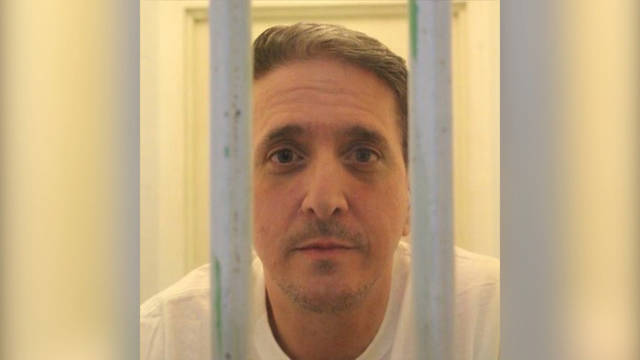
By Amy Goodman & Denis Moynihan
Countless cases lay bare the raw injustice of the death penalty in the United States. The case of Richard Glossip is certainly one of them. He’s been on Oklahoma’s death row since 1998, facing nine separate execution dates. He’s been given his final meal three times, and, in 2015, was saved from death just hours before his execution only after prison officials admitted they had ordered the wrong drug for their lethal cocktail. Richard Glossip has always maintained his innocence in the 1997 murder of Barry Van Treese, who employed him as a motel manager in Oklahoma City. The flawed prosecution had no physical evidence linking him to the crime. Only the testimony of the actual killer, Justin Sneed, another motel employee who had already confessed to the crime, implicated Glossip. In exchange, Sneed was able to avoid the death penalty.
Last Monday, Richard Glossip was granted what might be his last lifeline: The U.S. Supreme Court, after issuing a stay of execution last May, announced it will hear his appeal. Even Oklahoma’s elected Republican Attorney General Gentner Drummond is supporting Glossip’s appeal.
In agreeing to hear the case, the Supreme Court expects the parties to answer several questions, including “[w]hether due process of law requires reversal, where a capital conviction is so infected with errors that the State no longer seeks to defend it.”
In addition to Attorney General Drummond, a bipartisan group of Oklahoma state legislators is also advocating for Glossip. After Oklahoma Governor Kevin Stitt and the Oklahoma Pardon and Parole Board failed to act on the group’s clemency recommendation, the legislators recruited the ReedSmith law firm to conduct a pro-bono independent inquiry. Between June and September 2022, the law firm released four reports detailing flaws in the prosecution’s case and Justin Sneed’s attempts to recant his testimony against Glossip and the prosecution’s efforts to stop him from recanting.
In their 343-page final report, ReedSmith attorneys detailed the cases many problems: “The State’s destruction and loss of key evidence before Glossip’s retrial deprived the defense from using the evidence at trial (and has deprived the defense today of the ability to perform forensic testing using DNA and technology advancements), the tunnel‐vision and deficient police investigation, the prosecution’s failure to vet evidence and further distortion of it to fit its flawed narrative, and a cascade of errors and missed opportunities by defense attorneys, fundamentally call into question the fairness of the proceedings and the ultimate reliability of the guilty verdict against Glossip for murder.”
Since the Supreme Court stayed Glossip’s execution last May, a Republican-led group of Oklahoma legislators formed a committee, seeking a moratorium on the state’s death penalty overall. The likelihood that Richard Glossip, an innocent man, could be executed was the primary motivation behind the effort.
Oklahoma already imposed a brief execution moratorium, after a botched execution in 2014 called into question the state’s lethal injection protocol. Oklahoma lawmakers then passed a law that would allow the state to kill using an experimental technique referred to as “nitrogen hypoxia” or “nitrogen asphyxiation,” which had never been used. Scores of workers have died in industrial accidents from nitrogen gas leaks and spilled liquid nitrogen, including six people who died at a poultry plant in Gainesville, Georgia in 2021. Accidents like this have led those who devise execution methods to look to nitrogen as the latest, fool-proof method to kill.
Alabama became the first state to use nitrogen gas with its execution of Kenneth Smith on Thursday night. Smith survived Alabama’s first attempt to kill him, by lethal injection in November, 2022. The executioners frantically sought a vein to deliver the deadly cocktail, resorting at one point to subjecting Smith, strapped to a gurney, to an “inverted crucifixion position” as one person on the team repeatedly and painfully jabbed a needle under his collarbone. Even Alabama’s ultraconservative Republican Governor Kay Ivey saw the need to explore alternative means of execution, hence this new foray into gassing people to death.
Grotesque abuses of state power as in Oklahoma and Alabama are what led the late U.S. Supreme Court Justice Henry Blackmun to conclude, in a dissenting opinion in a 1994 case, “the death penalty remains fraught with arbitrariness, discrimination, caprice, and mistake.” Blackmun, a conservative when appointed by President Nixon in 1970, rendered increasingly liberal opinions during his tenure on the bench (he wrote the Roe v. Wade opinion, for example). In his 1994 death penalty dissent, Blackmun pledged, “From this day forward, I no longer shall tinker with the machinery of death.”
According to The Death Penalty Information Center, there are over 2,300 prisoners on death row in the United States.











Media Options